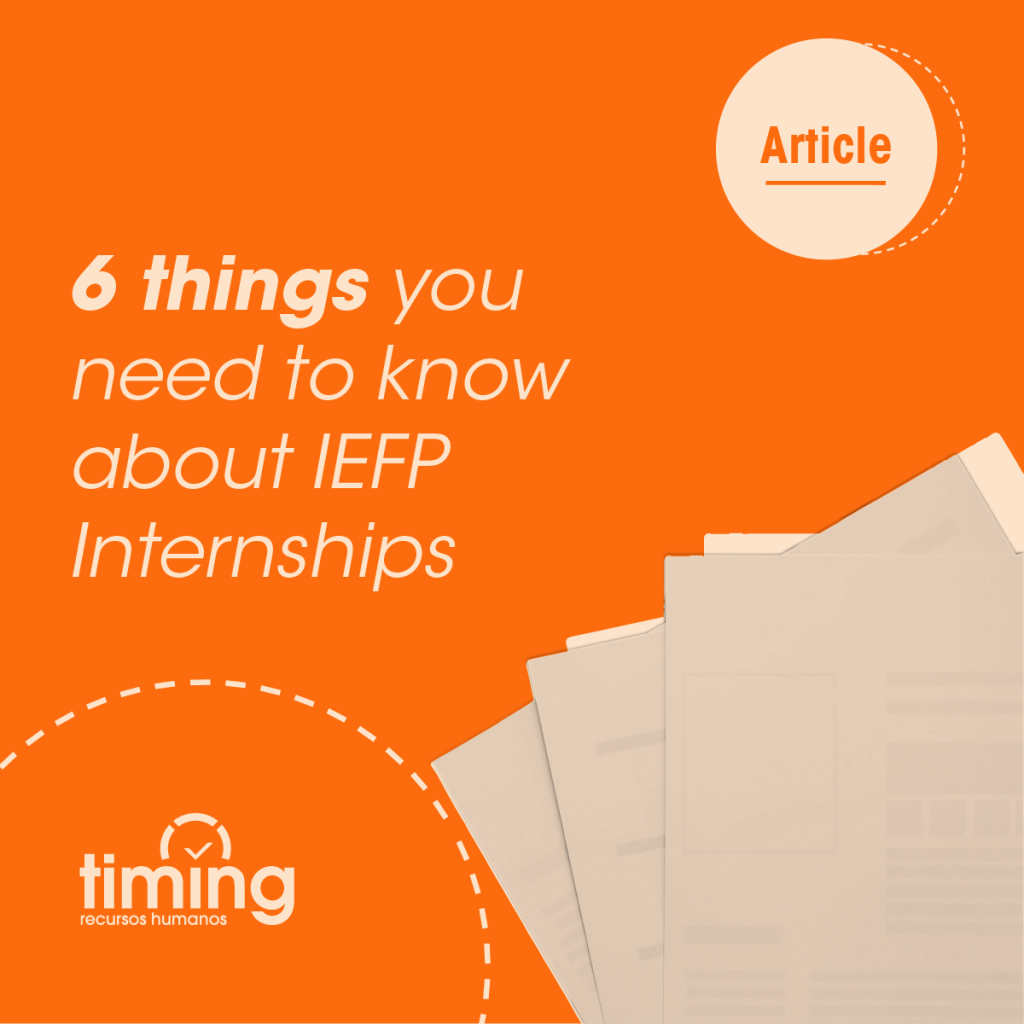
Internships
Entering the world of work can be an arduous and time-consuming task. It’s often due to a lack of experience in the field, especially when you’re looking for your first job after finishing school. Countless young people are faced with vacancies that require two to three years’ experience and end up with no response when they apply for these positions. The big question is trying to understand how this trend can be circumvented. How can young people with no experience enter the labour market and make their way?
The answer is simple: apply for IEFP internships.
1. What are traineeships?
These internships, according to the Institute for Employment and Professional Training are “internships lasting 9 months, not extendable, with a view to promoting the integration of young people into the labour market or the professional retraining of the unemployed.” As you can see, as well as being an internship focused mainly on the younger population, this measure is also intended to help the unemployed population, with the nuance that only people under the age of 30 can apply for internships, with a few exceptions.
2. Who can apply for traineeships?
In addition to young people between the ages of 18 and 30, other members of the population can also apply for these internships, such as adults over the age of 30 who have been unemployed for at least a year but have registered with the Qualifica Centre (Link to the Qualifica? platform portal). There are a few other exceptions to these traineeships, including people with disabilities, victims of domestic violence, refugees and single parents.
3. Is it a paid internship?
Yes, in contrast to curricular internships, IEFP professional internships are paid. This renumeration depends on the candidate’s level of qualifications. In 2023, the renumbering was as follows:
Level 1 and 2 – <12th year – € 624.56
Level 3 – 12th year – € 672.60
Level 4 – 12th year. Professional – € 768.69
Level 5 – Post-secondary not higher – € 816.73
Level 6 – College Degree– € 960,86
Level 7 – Master’s degree – € 1,056.95
Level 8 – Doctorate – € 1,201.08
In addition to these amounts paid to trainees, they are also entitled to a food allowance and occupational accident insurance.
4. How to proceed if you need to be absent.
As with an employment contract, if the trainee is unable to attend a day’s work, they must justify the absence and the day’s pay is deducted. If there are 5 consecutive absences without justification, the traineeship contract is immediately terminated.
5. Do IEFP internships pay IRS and Social Security?
Yes, for all intents and purposes these traineeship contracts are treated as employee contracts, so the amounts are taxed as IRS and subject to Social Security contributions. These obligations must be fulfilled by the companies and not by the IEFP.
6. How do I apply?
To apply, you must first register on the IEFP Portal. This application can be made online or by going to one of the physical counters available nationwide. From there, all you need to do is find an internship opportunity through an organisation that is registered with the programme and start working.
We hope this article has helped to clarify all your doubts about IEFP internships and that it will help you to enter the labour market. If you’re interested, you can also find out about our vacancies available throughout the country.
You can also visit our blog for more articles that will explain everything you need to know about the world of the labour market.
